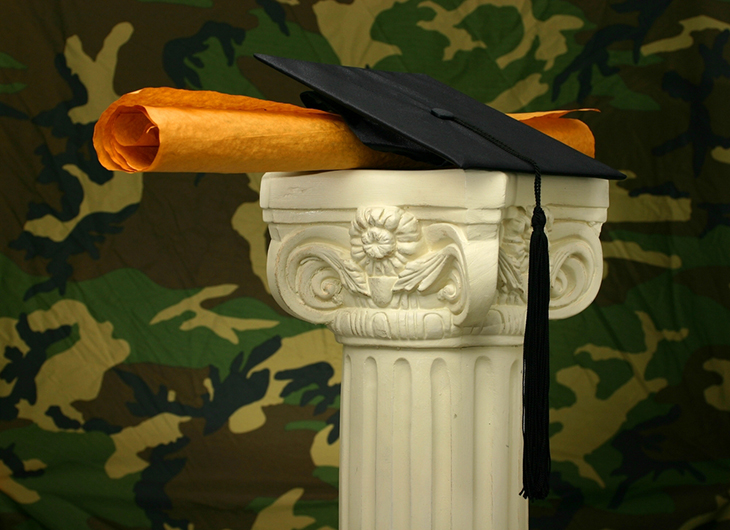Just because you are not technically in academia when you are in the service doesn’t mean you aren’t learning enough to earn college credit.
The G.I. Bill is one thing, but let’s face it: you have skills. It seems unfair for you not to get college credit in, say, engineering for your practical study if you act as an engineer for your military occupational specialty (MOS). Yet many schools simply don’t acknowledge equivalent credit from what may be hands-on work in higher stress situations than any other kind of freshman has ever faced.
So how can you position yourself to find the credits you deserve? Here’s what you can do to receive credit where it’s due.
Start with your transcript
As you probably know, the Joint Services Transcript (JST) provides a detailed assessment of your professional military education, training and occupation experiences and puts them on an official document. The American Council on Education gives instruction on how to apply for and receive a JST and is a wonderful resource for those looking to align their military experience and convert that into college credits. More than 2,300 colleges and universities take the JST document and use it to apply toward credits.
To augment your JST, make sure you use your Prior Learning Assessment (PLA) properly. This includes any college credits or AP exams. Also be certain that you retain any documentation that might assist in your credit development, including commendations, sample work, training certificates, recommendations and evaluations.
Schools will take all this into account when assessing how your JST will translate into credits.
Take the tests
There are several kinds of exams offered that allow Veterans to test out of college level courses using the knowledge built up during time in the service. The College-Level Examination Program (CLEP) includes 33 standardized tests in many subjects, and many Veterans and their families can take these tests for free.
The DSST exam process is another way that Veterans can earn college credit. Exams are available for everything from Astronomy to American History. However, before you apply to take these exams, make sure institutions that interest you will take the credits these tests claim to earn for you.
Portfolio analysis
Some institutions will allow Veterans to submit documentation including their JST, as well as written narratives and other supporting material. Corresponding faculty members will assess the portfolio and make a judgement on what this experience may correspond to in credits.
Do Your Research
There are many institutions that say they offer credit to incoming Veterans but do not assign those credits to associated skill sets. For example, if you had an engineering MOS, you might get some college credit, but it wouldn’t be for engineering, just for general studies—which won’t help you toward your major and would mean you might still be stuck taking remedial classes, even though you should have passed out of them. Make sure your credits will be taken for what they are worth.
More resources:
- Defense Activity for Non-Traditional Education Support (DANTES) helps Servicemembers with counseling and exam preparation.
- Service Members Opportunity Colleges serves to help create academic opportunities for Servicemembers and is tied directly to the American Association of State Colleges and Universities.
There is truly no shortage of resources to help servicemen and women take advantage of their time and education in the military and translate that to college credit. Increasingly, non-traditional students are being courted by universities, and many schools particularly embrace Veterans because their leadership training is so desirable.
The very best way to make sure you are getting all the credit you deserve is to rely on your training and take the initiative. Check in on your credits, talk to your advisors, do your research and be persistent. You’ll find that you can take years off of your college education, enter the workforce earlier and save a great deal of money in the process.

Topics in this story
More Stories
Yusuf Henriques, an Army Veteran and former combat medic, is the founder and CEO of IndyGeneUS AI, a genomics company on a mission to improve health equity by increasing representation of women and racial minorities in clinical trials.
Online shopping scams are the riskiest scam for Veterans, with 77.3% of reports confirmed losing money when targeted by this scam.
Air Force Veteran Angel McKenzie says, “MS is not a roadblock but a detour with a lot of twists, turns and curves.”







During my research yesterday I found that Kentucky State University was ranked #1 by US News for online graduate education programs for veterans. EKU is very dedicated to helping veterans and has a full staff devoted to helping vets get their military college benefits and deal with the issues you mention with transferring credits.
Thanks for the great information.
Actually I was stuck with this process of transferring credits.Now I’ll check into this again and I’ll definitely take INITIATIVE!!
Thanks again,
Samara John